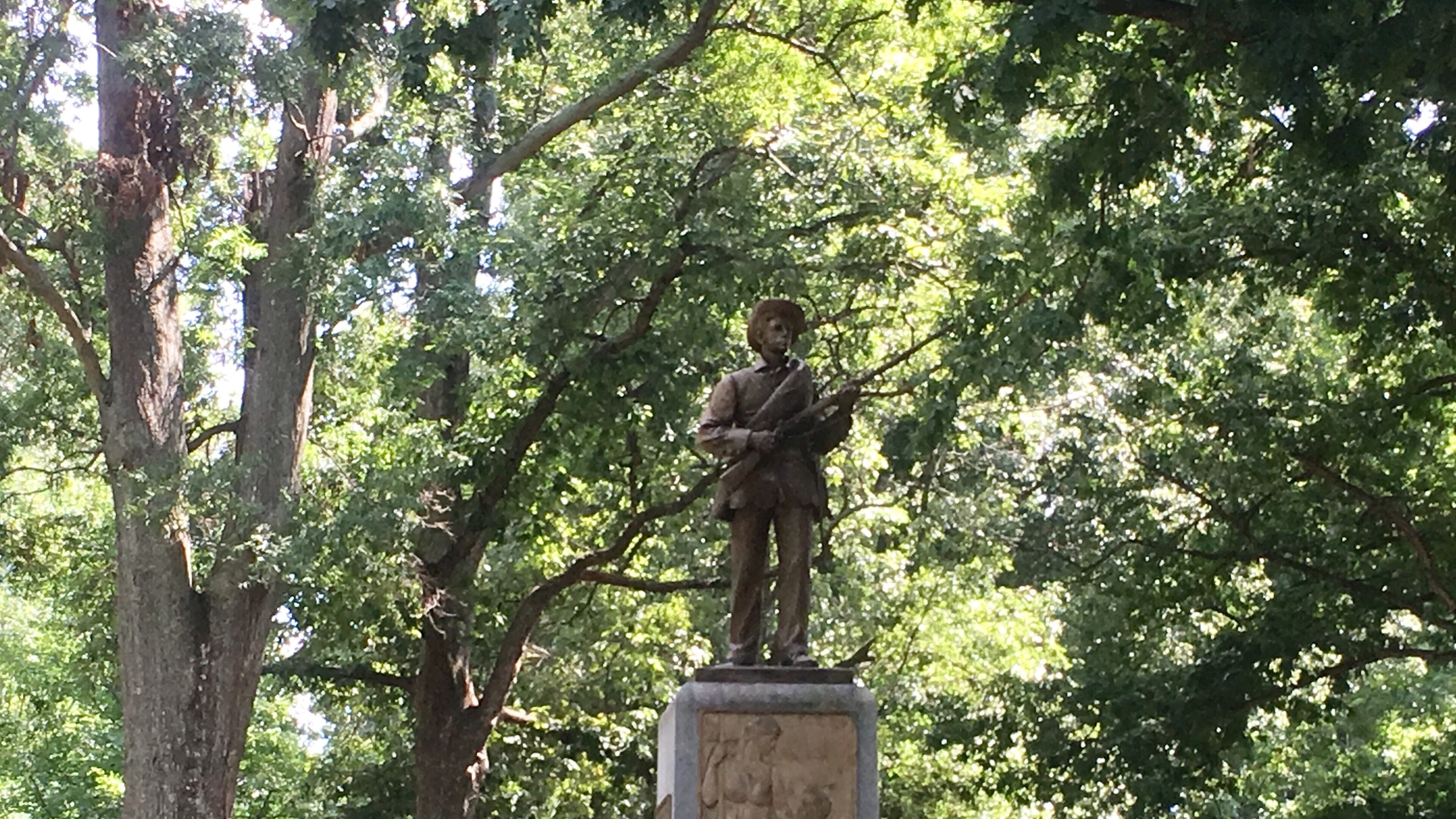Atlanta History Center to host panel on Confederate statues

The Atlanta History Center will host a panel discussion, "Confederate Memorials: De-Mythologizing the Iconography of the South ," at 7 p.m. Sept. 11 at the Margaret Mitchell House in Midtown.
PAST COVERAGE: Atlanta's Peace Monument, damaged by protestors, champions reconciliation, not the Confederacy
"We need to be talking about history," Atlanta History Center President and CEO Sheffield Hale said during an interview last year, when furor over the Charleston shootings of nine worshippers prompted a rash of monument removals, including several in New Orleans. "These monuments give you an opportunity to talk about it."
The Atlanta History Center at the time launched a segment on its web site aimed at helping communities repurpose Confederate monuments or statues as learning opportunities. It has suggested language communities could consider posting on additional signage near existing structures posted here.
“For us it’s really about reinterpreting these monuments and turning them into artifacts, to really change the conversation,” Hale said. “It’s extremely important for us to remember our history.”
More monuments have come down since violence in Charlottesville claimed the life of activist Heather Heyer. Her mother, Susan Bro, appeared at the MTV Video Music Awards on Sunday night to announce a foundation launched in her daughter's memory. The Rev. Robert Lee IV, descendant of CSA Gen. Robert E. Lee, introduced Bro.
“We have made my ancestor an idol of white supremacy, racism and hate,” he said. “As a pastor, it is my moral duty to speak out against racism, America’s original sin. Today, I call on all of us with privilege and power to answer God’s call to confront racism and white supremacy head on.”
Lee graduated from Duke University’s Divinity School with a master’s in theology. A statue of Gen. Lee was removed from Duke Chapel recently after protesters damaged it.
Down the road from Duke, protestors have called for the removal of "Silent Sam."
Erected in 1913 by the North Carolina Division of the United Daughters of the Confederacy and UNC alumni, Silent Sam is sort of a generic tombstone, commemorating "the sons of the University who entered the war of 1861-65," a plaque on one side says. Tuesday was the first day of classes and fliers posted throughout the campus urged people to attend a rally connoting the statue's "last semester on campus."
The program is free and open to the public, but reservations are encouraged. See this site.

- Dr. Regina N. Bradley is a writer and researcher of African American life and culture. She is an alumna Nasir Jones HipHop Fellow (Harvard University, Spring 2016) and is the Assistant Professor of English and African Diaspora Studies at Kennesaw State University. Bradley's expertise and research interests include 20th and 21st century African American literature, hip hop culture, race and the contemporary U.S. South, and sound studies.
- James A. Crank is an Assistant Professor of American/Southern Literature and Culture at the University of Alabama. Editor of "New Approaches to Gone With the Wind" and author of the books "Understanding Sam Shepherd" and the forthcoming "Understanding Randall Kenan," Crank's research focuses primarily on issues of race, sexuality, and class in concert with regional identities.
- Dr. Maurice J. Hobson is an Assistant Professor of African American Studies at Georgia State University. Hobson's research interests are grounded in the fields of 20th century U.S. and African American history, African American studies, oral history and ethnography, urban and rural history, political economy, and popular cultural studies. He is working to establish an emerging field that he calls Black New South Studies. He is working on his manuscript "The Legend of the Black Mecca: Myth, Maxim and the Making of an Olympic City."
- Erich Nunn is Associate Professor of English at Auburn University, where he teaches American Studies, with an emphasis on the literature and culture of the South. He is the author of "Sounding the Color Line: Music and Race in the Southern Imagination," as well as articles on authors such as William Faulkner and Mark Twain, and topics concerning race, music, and popular culture.


